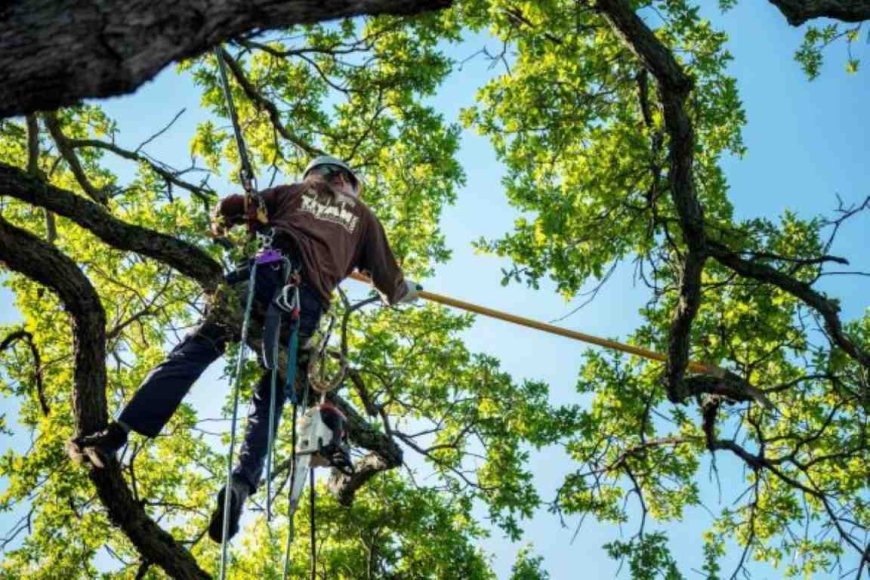Emergency Tree Removal: What to Do When a Tree Becomes a Serious Hazard
Emergency tree removal is something you hope you never need—but when disaster strikes, a quick, professional response is key. Whether it's a tree on your roof or blocking your driveway, acting fast keeps your family safe and your property protected. The best way to avoid emergencies? Proactive care and regular tree maintenance. Don't wait until it's too late.

Emergency tree removal is the rapid and safe removal of trees that pose an immediate threat to people, property, or public safety. This service is typically needed after storms, structural failures, or sudden health declines in trees.
When is Tree Removal Considered an Emergency?
If a tree is leaning dangerously, has already fallen, or is about to collapse due to visible damage or decay, its time to call an emergency tree serviceespecially if its near your home, power lines, or roadways.
Common Causes of Tree Emergencies
Storm Damage
High winds, heavy rain, ice, and snow can snap branches or uproot entire trees. Storms are the number one reason for emergency tree calls.
Fallen Trees
Whether its from age, decay, or a sudden storm, a fallen tree can block roads, damage property, or trap people inside their homes.
Cracked or Leaning Trees
Cracks in the trunk or a noticeable lean, especially one that suddenly appears, are red flags that the tree may be on the brink of falling.
Pest Infestation or Disease
Severe infestations (like termites or bark beetles) or advanced disease can hollow out a tree from the inside, making it structurally unstable.
Lightning Strikes
A tree hit by lightning can explode, catch fire, or break apartposing a major hazard even if it doesnt fall right away.
Why Emergency Tree Removal is Important
Preventing Injury or Death
A falling branch or collapsing tree can seriously harm people or pets. Quick removal helps eliminate that risk.
Avoiding Property Damage
Trees that fall on roofs, fences, cars, or power lines can cause thousands in damage and even create fire hazards.
Restoring Access and Safety
Emergency removal may be needed to clear blocked driveways, entrances, or public roads.
Legal and Insurance Implications
If a tree on your property causes damage, you could be held liable. Insurance may not cover claims if the tree was previously identified as hazardous.
Signs You Need Emergency Tree Removal
Tree Leaning at a Dangerous Angle
Sudden leaningespecially toward a structure or pathis a major danger sign.
Roots Lifting From the Ground
Exposed or shifting roots often mean the tree has lost stability and may fall soon.
Cracks in the Trunk
Large vertical splits or hollow areas can indicate structural failure is imminent.
Branches Hanging Over Structures or Roads
Dead or damaged limbs over rooftops, cars, or roads can fall at any moment and should be addressed immediately.
What to Do During a Tree Emergency
Stay Calm and Keep a Safe Distance
Don't approach a damaged or leaning tree. If power lines are involved, stay far away and call the utility company immediately.
Avoid DIY Solutions
Trying to handle a dangerous tree yourself can result in serious injury. Leave it to trained professionals with the right tools and experience.
Call a 24/7 Emergency Tree Service
Look for local companies that offer emergency response, and get them on-site as soon as possible.
Notify Local Authorities (If Needed)
If a tree has blocked a public road or is touching power lines, your local city or utility provider should be informed immediately.
Choosing an Emergency Tree Removal Service
What to Look for in a Contractor
-
24/7 availability
-
Certified arborists
-
Proper equipment
-
Fast response time
-
Experience with emergency situations
Questions to Ask
-
How soon can you arrive?
-
Are you insured and licensed?
-
Will you remove the debris?
-
Do you work with insurance companies?
Importance of Insurance and Licensing
Always verify that your contractor is insured to protect yourself from liability and unexpected costs.
Cost of Emergency Tree Removal
Factors That Affect Emergency Pricing
-
Time of day (after-hours costs more)
-
Tree size and location
-
Equipment required
-
Risk involved
-
Weather conditions
Average Cost Ranges
-
Minor emergencies: $300$800
-
Medium emergencies: $800$1,500
-
Major emergencies (large trees, complex access): $1,500$5,000+
Insurance Coverage and Claims
Most homeowner policies cover emergency tree removal if the tree causes damage to insured structures. Save all documentation and photos for your claim.
Preventing Future Emergencies
Regular Tree Inspections
Annual check-ups by a certified arborist help spot problems before they become dangerous.
Proactive Pruning
Removing weak, dead, or overhanging branches reduces the risk of storm damage.
Removing High-Risk Trees
Trees that are dying, diseased, or too close to your home should be considered for removal in advance.
Tree Health Maintenance
Proper watering, mulching, and fertilizing go a long way in keeping trees strong and resilient.
Final Thoughts
Emergency tree removal is something you hope you never needbut when disaster strikes, a quick, professional response is key. Whether it's a tree on your roof or blocking your driveway, acting fast keeps your family safe and your property protected. The best way to avoid emergencies? Proactive care and regular tree maintenance. Don't wait until it's too late.
FAQs
Will my homeowners insurance cover emergency tree removal?
Yes, in many casesespecially if the tree damaged your home or another insured structure.
How fast can an emergency tree removal service respond?
Most reputable companies respond within 13 hours for true emergencies.
What should I do if a tree falls on a power line?
Stay far away, call 911, and contact your power company. Do not attempt to move anything yourself.
Can a tree be saved after storm damage?
If the damage is minor, pruning may be enough. But major structural damage often requires removal.
How do I find a reliable emergency tree service near me?
Search online for local, licensed, and insured companies with 24/7 availability and positive reviews.































